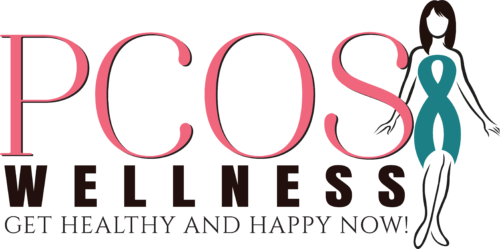
PCOS and the Pursuit of Happiness
As a psychologist, people come to me for help in fixing their problems, chief among them unhappiness (depression) and the pursuit of happiness.
I try to help as efficiently as possible, with all of the tools available to me, seeking a cure for this unhappiness. But sometimes I wonder if we are asking the wrong questions, and setting the wrong goals. Instead of asking “how do we become happy,” maybe it’s important to consider other questions as well:
What is happiness anyway?
Happiness is variously defined as pleasure, contentment, satisfaction, joy, and similar words.
It’s the opposite of unhappiness, of course.
But happiness can be anything you want it to be.
Maybe it’s just “good enough” and not perfection.
Why are we so focused on it?
We seem to be hard-wired for pleasure, and the pursuit of pleasure. From the moment a baby first tastes sweetness, that baby seeks sweetness and the accompanying pleasure.
Historically, survival was the focus of most people’s lives. The idea of happiness is very much a modern (well, if you can call the 18th-century modern still!) construct, and a pretty purely Western construct at that. In other words, it’s not the truth, or “the way it’s always been.” Certainly not for all people, across time.
In the United States, our Declaration of Independence famously states that “Life, Liberty, and the pursuit of Happiness” are unalienable rights. This is commonly misinterpreted as “everyone is entitled to happiness.” We are not; we are merely entitled to pursue it. But sometimes the pursuit depletes our energy, poisons our brains, and leaves us miserable and unsatisfied. Desperate even, at times.
Why are so many of us so unhappy?
Contemporary consumer culture, replete with subtle and insidious images of more, more, more imply that happiness is achieved through consumption. If only you will consume more, you will achieve greater happiness. This is also clearly not the truth, as over-consumption may lead to overweight, debt, substance abuse, and decreased personal or professional achievement.
We have made normal thoughts and feelings into a disease. We have sanitized death and pathologized it, thereby diluting its transformative energy.
You should feel sadness, anger, envy, shame, and grief. Pretending not to feel them is a lie that perpetuates unhappiness. Denying the reality of our feelings is not a one-sided behavior; if you smash down the “bad” feelings, the “good” ones are going to go right along with them.
How much is enough?
It’s not impossible to measure happiness (you can take this happiness quiz right now, in fact). Psychologists who specialize in Positive Psychology have made quite a study of it in fact.
But only you can answer the question for yourself. I suggest taking the quiz and then spend a few minutes journalling about happiness. See what YOU think – not what someone else thinks.
How can we increase our happiness?
Stop idolizing happiness; it simply isn’t the be-all, end-all that it’s made out to be.
Know that without sadness, grief, weariness, exhaustion, and longing – the contrast in our lives – we would lose the experience of happiness. Imagine if all of your emotions were the same, all day, every day. It sounds incredibly boring to me!
Explore other cultural perspectives on happiness; Hinduism, for example, conceptualizes happiness as being more about equanimity and peaceful acceptance of both good and bad.
Instead of exhausting yourself in the pursuit of happiness, consider adopting “contentment” as a working definition of happiness, and see how that feels.
And please, join me on my private Facebook page, PCOS Psychology, for an ongoing discussion of how to get your happy on!
Session expired
Please log in again. The login page will open in a new tab. After logging in you can close it and return to this page.
